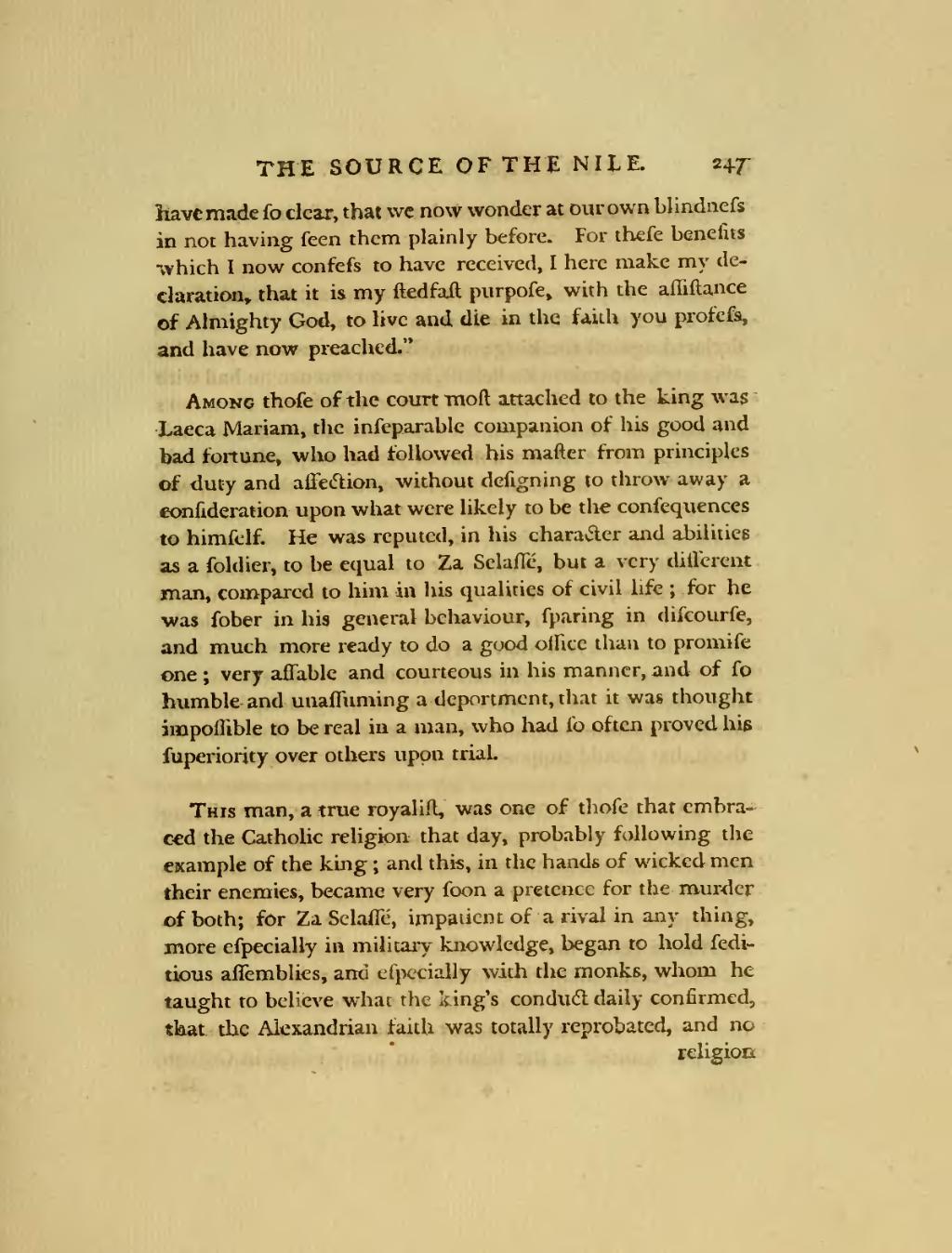have made so clear, that we now wonder at our own blindness in not having seen them plainly before. For these benefits which I now confess to have received, I here make my declaration, that it is my stedfast purpose, with the assistance of Almighty God, to live and die in the faith you profess, and have now preached."
Among those of the court most attached to the king was Laeca Mariam, the inseparable companion of his good and bad fortune, who had followed his master from principles of duty and affection, without designing to throw away a consideration upon what were likely to be the consequences to himself. He was reputed, in his character and abilities as a soldier, to be equal to Za Selaffé, but a very different man, compared to him in his qualities of civil life; for he was sober in his general behaviour, sparing in discourse, and much more ready to do a good office than to promise one; very affable and courteous in his manner, and of so humble and unassuming a deportment, that it was thought impossible to be real in a man, who had so often proved his superiority over others upon trial.
This man, a true royalist, was one of those that embraced the Catholic religion that day, probably following the example of the king; and this, in the hands of wicked men their enemies, became very soon a pretence for the murder of both; for Za Selaffé, impatient of a rival in any thing, more especially in military knowledge, began to hold seditious assemblies, and especially with the monks, whom he taught to believe what the king's conduct daily confirmed, that the Alexandrian faith was totally reprobated, and no
